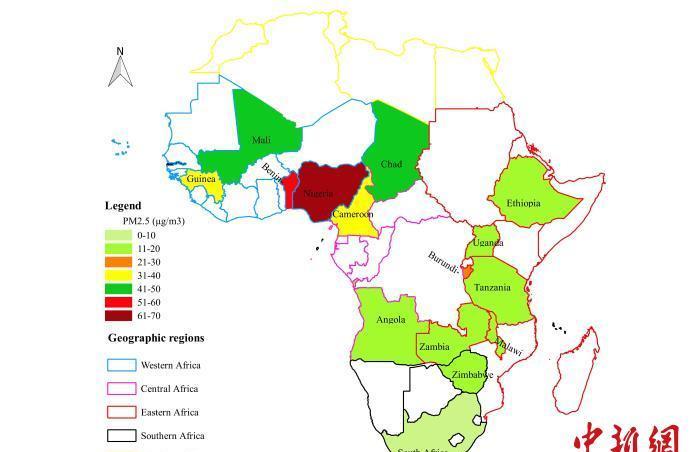
Sub-Saharan Africa has consistently been the region with the highest incidence of adverse birth outcomes. Schematic diagram of the study
Zhongxin Online Hai, December 24 (Sun Guogen, Chen Jing) reporters learned on the 24th that with the support of the National Natural Science Foundation of China's major research program, Professor Kan Haidong's research team from the School of Public Health of Fudan University led Dr. Jovine Bachwenkizi, a tanzanian doctoral student studying in China, and Dr. Liu Cong, school of public health of Fudan University, to provide epidemiological evidence of air pollution and birth outcomes in Africa through multi-center research. They found that exposure to PM2.5 during pregnancy had a significant adverse effect on preterm birth and low birth weight.
With medical and socio-economic advancements, the incidence of low birth weight and preterm birth is decreasing globally, but sub-Saharan Africa has consistently been the region with the highest incidence of adverse birth outcomes.
The scholars collected birth records, infant birth weight, maternal status and household information from 15 African countries between 2005 and 2015, using globally covered satellite models for exposure assessment, to explore the effects of exposure to fine particulate matter (PM2.5) during pregnancy on low birth weight and preterm birth.
Chinese and African scholars join hands to carry out research. Courtesy of School of Public Health, Fudan University
It is reported that the study provides certain ideas for future air pollution and health research in similar low- and middle-income countries. It is reported that the relevant research results have been published in the latest issue of the international authoritative journal in the field of environmental health, "Environment International".
According to Kan Haidong, preterm birth (28 weeks to less than 37 weeks of gestation) and low birth weight (infant birth weight less than 2500g) are the most common adverse birth outcomes, and are often used as important predictors of morbidity and mortality during infant growth.
According to reports, the study collected a total of about 140,000 birth records, of which 13,214 infants were observed to be low birth weight accounted for about 10%, and 4377 cases of premature birth, accounting for 3.3%. Scholars have found that exposure to PM2.5 during pregnancy significantly increases the risk of low birth weight and preterm birth in multi-african infants, and pm2.5 concentrations increase by 33.9 micrograms per cubic meter can significantly increase the risk of low birth weight in infants by 28% and the risk of preterm birth in infants by 8%; in different regions of Africa, the association between PM2.5 exposure and low birth weight remains stable, while the impact of PM2.5 on preterm birth exists in West Africa and southern Africa.
Through stratification analysis, it was found that PM2.5 more significantly affected the low birth weight of female infants, while the impact of PM2.5 on preterm birth was more pronounced in older women. In addition, the study estimated the effect of PM2.5 on absolute values of birth weight, with PM2.5 concentrations increasing by 33.9 micrograms per cubic meter and infant birth weight decreasing by about 47 grams.
Kan Haidong said that the above observational research results need to be supported by subsequent toxicological evidence, and it is necessary to continue to pay attention to the health effects of other air pollutants. (End)